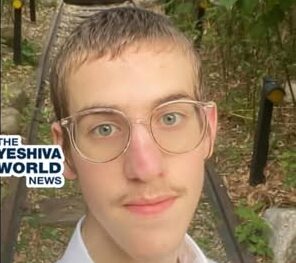The Unbearable Weight: A Public Display of Private Pain
The massive ultra-Orthodox protest in Jerusalem was tragically overshadowed by the devastating death of 20-year-old Menachem Mendel Litzman. His life ended after a fall from an unfinished high-rise building at the protest site, in an incident police are investigating as a potential suicide. The shocking, heartbreaking moment is compounded by the reported farewell message left on social media, where he spoke of being unable to “cope” and asked for forgiveness. This was not merely a tragic accident; it was a deeply personal, final act that occurred in the most public of arenas, turning a collective protest into a devastating, individual tragedy. The sight of a young man, seemingly isolated amidst hundreds of thousands, speaks to an anguish that transcends any single political or social issue.
Beyond the Headline: The Anguish of the Unseen Struggle
Menachem Mendel Litzman’s passing is a devastating alarm bell that echoes far beyond the streets of Jerusalem. It highlights the immense, unseen mental health struggles that can plague young people, even within tightly knit communities. His final words—a desperate plea stating he could “no longer cope”—demand that we look beyond the political debates and see the individual pain. He was a son, a friend, and a soul wrestling with internal demons that proved too heavy to bear. The loss is immense, particularly for his family and the community now grappling with the fact that their young man felt such profound, inescapable isolation despite being surrounded by hundreds of thousands.
A Vow of Compassion: An End to the Silence
In the face of this overwhelming sorrow, the most vital and sincere tribute to Menachem Mendel Litzman must be a decisive end to the silence surrounding mental health. The community must transform this tragedy into a shared, compassionate vow to ensure no other person feels they “can no longer cope.” His death should inspire urgent, widespread efforts to provide accessible emotional and psychological support. While the community mourns the young man who was lost, they must commit to finding the strength and tools to lift up those who are struggling in silence. His memory deserves to be a catalyst for a future where help is visible, accessible, and free of stigma.

Leave a Reply